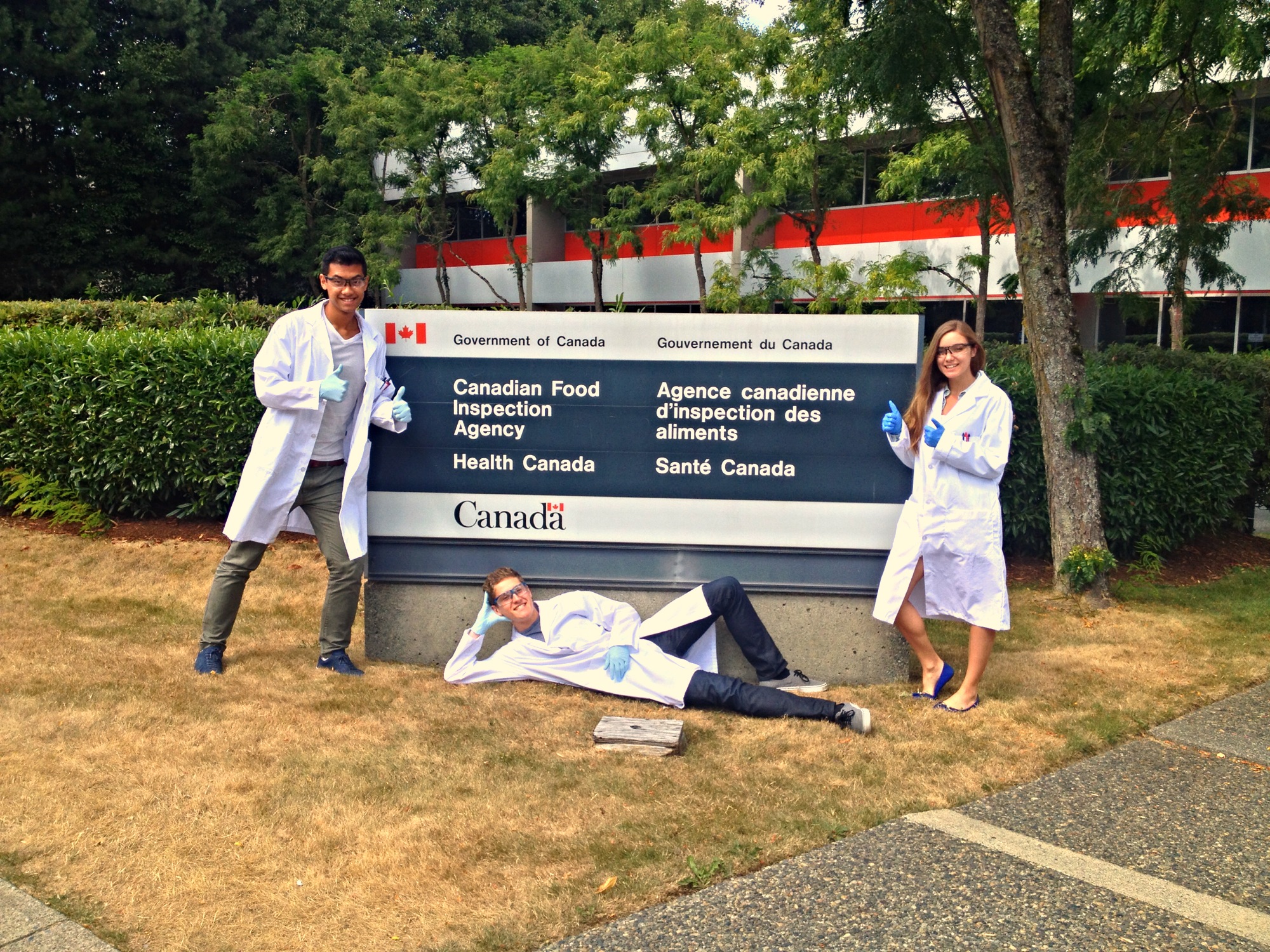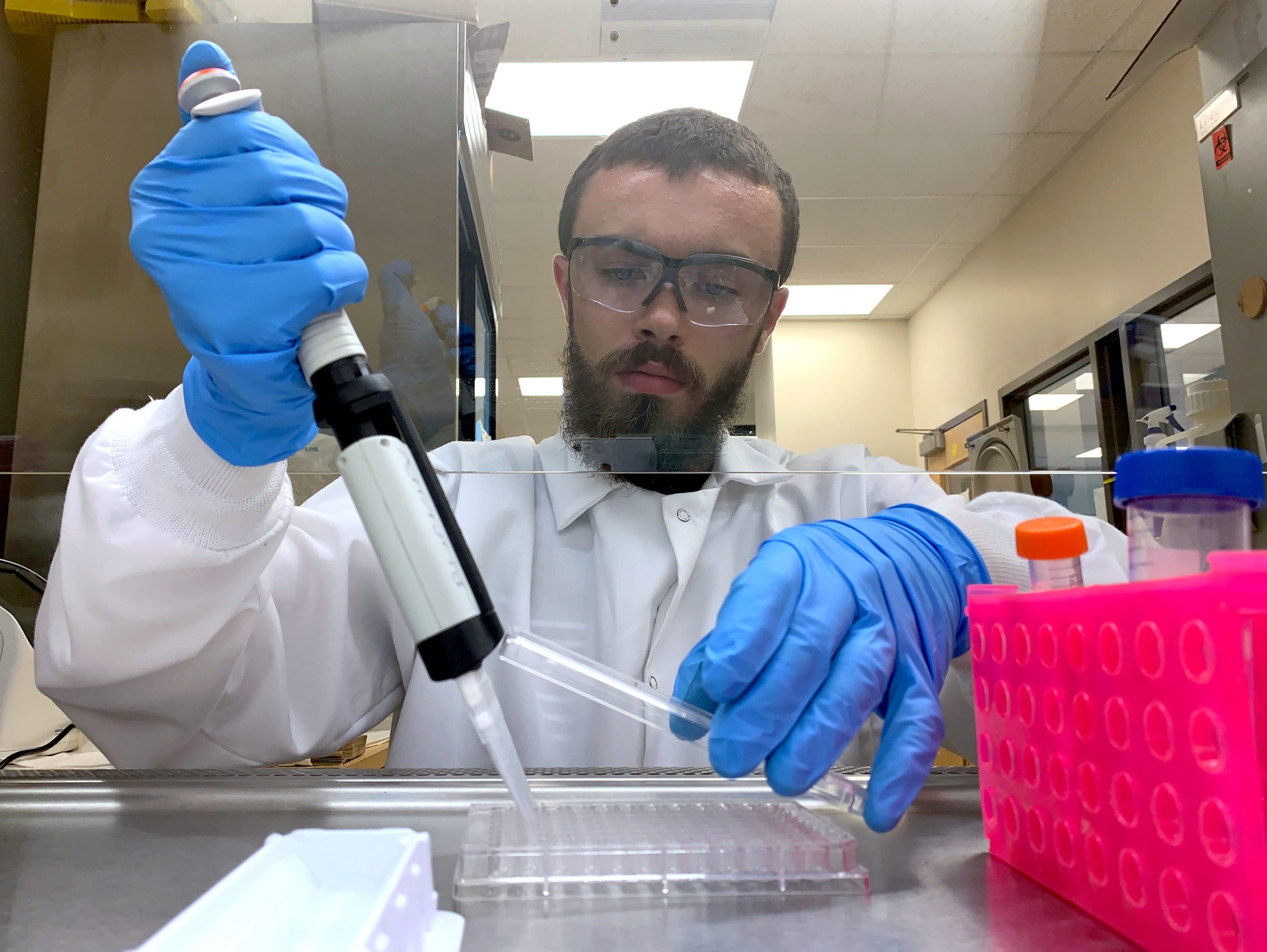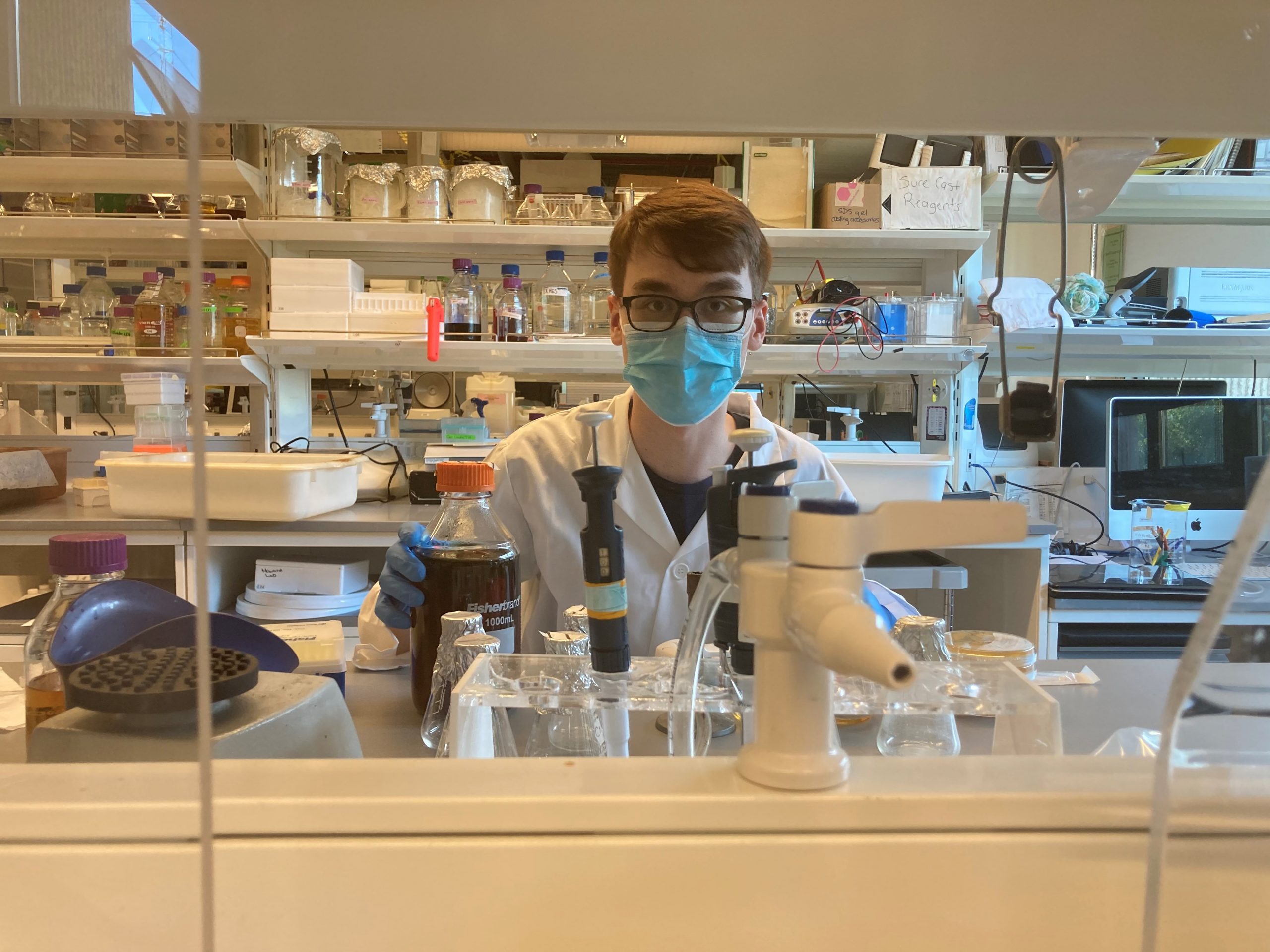
CLICK HERE to watch BCMB co-op info session recording
Recorded Sept 10, 2022
Biochemistry & Microbiology co-op students can
- Monitor industrial fermentation processes
- Test clinical, environmental, food and water samples for microbial or chemical contamination
- Conduct original research using modern biochemistry, immunology, molecular biology, genomics and proteomics technology
- Develop tests and assays for detecting molecules of interest

Biochemistry & Microbiology co-op students work for
- Academic research labs and institutes
- Pharmaceutical and biotechnology companies like Immunoprecise, Eli Lilly, Bayer, Eupraxia, Chinook and Zymeworks
- Breweries, wineries and distilleries like Hoyne Brewing, Category 12 and Tinhorn Creek
- Government agencies like BC Cancer Research Agency, Agriculture and Agrifood Canada, VIDO Intervac, the National Microbiology Laboratory, the Canadian Food Inspection Agency, and the National Research Council
- Food, chemical and equipment manufacturers like PALL, Lallemand, Thrifty Kitchens, and Agropur
- Health Authorities
- Clinical practices
- Clinical Research Organizations like ICON plc

Read more about what BCMB co-op students have done
Knowledge you can gain on your work term
- examine the structure and function of proteins
- understand the principles and analysis of kinetic mechanisms
- use proteomics and protein interactions in binding and catalysis
- understand the structure and function of carbohydrates
- understand the structure and function of lipids
- examine biological membranes and bioenergetics
- understand metabolic processes and their control
- understand the structure and function of DNA, RNA and genes
- understand gene expression in eukaryotes
- explore the biochemical basis of signal transduction
Microbiology and immunology
- understand prokaryotic and eukaryotic cell structure and function
- understand the physiology and growth of microorganisms
- understand the molecular taxonomy of microorganisms
- understand microbial genetics and genomics
- study microbial cell biology using molecular approaches
- explore immunology, generation of antibody diversity, immune effect or mechanisms and immunological principles
- understand molecular virology and animal viruses
- examine developments and uses of molecular biotechnology
- understand microbial pathogenesis and the molecular mechanisms of pathogenesis
Lab work
- use safe and careful practices
- keep accurate lab records
- use sterile and aseptic techniques
- use pipetting technique
- perform lab experiments following standard methods and procedures
- take accurate measurements and identify potential sources of error
- troubleshoot and optimizes methods and techniques
- develop methods and procedures
- analyze, make, purify, modify and characterize compounds, samples or devices
- use lab instruments
- critically evaluate lab data
Scientific method
- search and critically evaluate scientific literature
- understand new and emerging uses of biochemistry, microbiology and biotechnology
- gather evidence through observation and experimentation
- analyze data and formulate a clear, answerable question
- use inductive reasoning and deductive methods to develop a testable, falsifiable hypothesis and predict expected results
- design quantitative approaches or experiments to test and evaluate hypotheses
- observe and record the results of research
- use mathematical and statistical methods and analytical tools to evaluate data
- draw conclusions
- communicate results and ideas in scientific reports, papers and oral presentations
- identify the need to do further research
- write and speak effectively
Computer skills
- create and modify scientific software
- use scientific software
- develop and use computer modeling as a proxy for physical experimentation
- develop and use computational methods to analyze large data sets
Field work
- observe behaviour or properties of subjects and phenomena
- make measurements of the subjects or phenomena or their environment
- identify and collect samples for analysis
- use field equipment, tools and machinery
Education and training
- teach science at a level appropriate to the audience
- assess achievement of learning outcomes
- train and supervises others to perform scientific procedures
